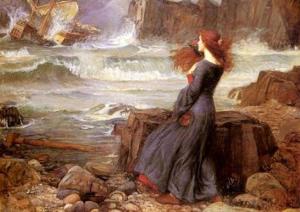The Blind brother: A Story of the Pennsylvania Coal Mines
Nonfiction, Religion & Spirituality, New Age, History, Fiction & Literature| Author: | Homer Greene | ISBN: | 9781465600127 |
| Publisher: | Library of Alexandria | Publication: | March 8, 2015 |
| Imprint: | Language: | English |
| Author: | Homer Greene |
| ISBN: | 9781465600127 |
| Publisher: | Library of Alexandria |
| Publication: | March 8, 2015 |
| Imprint: | |
| Language: | English |
The Dryden Mine, in the Susquehanna coal-fields of Pennsylvania, was worked out and abandoned long ago. To-day its headings and airways and chambers echo only to the occasional fall of loosened slate, or to the drip of water from the roof. Its pillars, robbed by retreating workmen, are crumbling and rusty, and those of its props which are still standing have become mouldy and rotten. The rats that once scampered through its galleries deserted it along with human kind, and its very name, from long disuse, has acquired an unaccustomed sound. But twenty years ago there was no busier mine than the Dryden from Carbondale to Nanticoke. Two hundred and thirty men and boys went by the slope into it every morning, and came out from it every night. They were simple and unlearned, these men and boys, rugged and rude, rough and reckless at times, but manly, heroic, and kindhearted. Up in the Lackawanna region a strike had been in progress for nearly two weeks. Efforts had been made by the strikers to persuade the miners down the valley to join them, but at first without success. Then a committee of one hundred came down to appeal and to intimidate. In squads of ten or more they visited the mines in the region, and, in the course of their journeyings, had come to the Dryden Slope. They had induced the miners to go out at all the workings they had thus far entered, and were no less successful here. It required persuasion, sometimes threats, sometimes, indeed, even blows, for the miners in Dryden Slope had no cause of complaint against their employers; they earned good wages, and were content. But, twenty years ago, miners who kept at work against the wishes of their fellows while a strike was in progress, were called “black-legs,” were treated with contempt, waylaid and beaten, and sometimes killed. So the men in the Dryden Mine yielded; and soon, down the chambers and along the headings, toward the foot of the slope, came little groups, with dinner-pails and tools, discussing earnestly, often bitterly, the situation and the prospect. The members of a party of fifteen or twenty, that came down the airway from the tier of chambers on the new north heading, were holding an especially animated conversation. Fully one-half of the men were visiting strikers. They were all walking, in single file, along the route by which the mine-cars went.
The Dryden Mine, in the Susquehanna coal-fields of Pennsylvania, was worked out and abandoned long ago. To-day its headings and airways and chambers echo only to the occasional fall of loosened slate, or to the drip of water from the roof. Its pillars, robbed by retreating workmen, are crumbling and rusty, and those of its props which are still standing have become mouldy and rotten. The rats that once scampered through its galleries deserted it along with human kind, and its very name, from long disuse, has acquired an unaccustomed sound. But twenty years ago there was no busier mine than the Dryden from Carbondale to Nanticoke. Two hundred and thirty men and boys went by the slope into it every morning, and came out from it every night. They were simple and unlearned, these men and boys, rugged and rude, rough and reckless at times, but manly, heroic, and kindhearted. Up in the Lackawanna region a strike had been in progress for nearly two weeks. Efforts had been made by the strikers to persuade the miners down the valley to join them, but at first without success. Then a committee of one hundred came down to appeal and to intimidate. In squads of ten or more they visited the mines in the region, and, in the course of their journeyings, had come to the Dryden Slope. They had induced the miners to go out at all the workings they had thus far entered, and were no less successful here. It required persuasion, sometimes threats, sometimes, indeed, even blows, for the miners in Dryden Slope had no cause of complaint against their employers; they earned good wages, and were content. But, twenty years ago, miners who kept at work against the wishes of their fellows while a strike was in progress, were called “black-legs,” were treated with contempt, waylaid and beaten, and sometimes killed. So the men in the Dryden Mine yielded; and soon, down the chambers and along the headings, toward the foot of the slope, came little groups, with dinner-pails and tools, discussing earnestly, often bitterly, the situation and the prospect. The members of a party of fifteen or twenty, that came down the airway from the tier of chambers on the new north heading, were holding an especially animated conversation. Fully one-half of the men were visiting strikers. They were all walking, in single file, along the route by which the mine-cars went.















